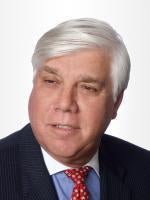In the aftermath of the rejection of the Central States Southeast and Southwest Areas Pension Plan (“Central States”) application to reduce core benefits by Treasury Special Master Kenneth Feinberg, it is critical that contributing employers to multi-employer pension funds recognize the harsh reality that help to those funds will not be forthcoming from the government in at least the near term.
Although Feinberg was careful to emphasize that the rejection of the Central States application was limited to Central States and that pending applications by other funds would be considered independently, the text of the May 6, 2016 rejection letter belies that statement.
Of the three criteria which Central States did not meet, only one could possibly be remedied; that Notices must be written so as to be understood by the average plan participant. Ironically, the majority of plan participants who received drafts of the Notices in a sampling before Central States filed its application stated that it was understood!
Particularly troublesome was the finding that the proposed benefit suspensions were not reasonably estimated to allow Central States to avoid insolvency within the projected 10 years. It did not take the plan “off the path of insolvency.”
Treasury criticized the assumptions used in the actuarial projections declaring that they contained a bias because they were “significantly optimistic.” Specifically, the 7.5% annual investment rate of return assumptions failed to adequately take into account relevant current economic data and exceeded longer-term expected rates of return.
Rather, Treasury opined that the estimated 10- year average rate of return should have been 6.43% reflective of the Horizon Survey of investment forecasts. However, adoption of that rate would have resulted in even deeper reductions in core benefits to participants.
Significantly, a review of several other multi-employer funds reveals that an investment return assumption of 7.50% is not uncommon. Based on Treasury’s “scrutiny,” it seems probable that the other pending applications will suffer a similar fate to Central States.
Although there have been cries seeking a quick passage of some form of legislation (not fully articulated) to help funds such as Central States and their participants, the current Congress is unlikely to do so in an election year.




 />i
/>i

